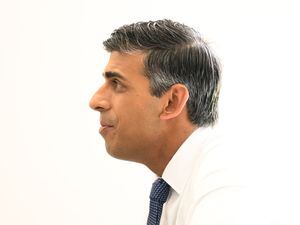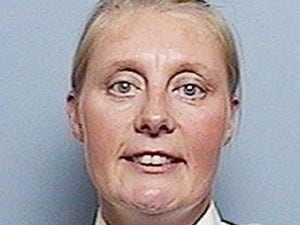Stubborn core inflation and wage rises cast doubt on Sunak’s policy pledge
Rishi Sunak insisted his plan to halve inflation is working but commentators said it was not a foregone conclusion.

Rishi Sunak’s promise to halve inflation by the end of the year could be in jeopardy despite another fall in the Consumer Prices Index, experts have warned.
The Prime Minister has committed to bringing down CPI to around 5.3% by the end of the year and July’s figure of 6.8% brought the measure to its lowest level since February 2022, when Vladimir Putin’s invasion of Ukraine kicked off a surge in global prices.
But commentators suggested the falls in CPI – which was down from 7.9% in June, according to Office for National Statistics (ONS) figures – may not be enough to meet Mr Sunak’s goal.
While soaring energy prices have eased substantially and the pace of change in food costs has also come down, other aspects of inflation have remained stubbornly high.
On Tuesday, the ONS revealed that regular pay growth, which excludes bonuses, reached a record 7.8% compared with a year earlier, for the quarter to June.
That could have the effect of stimulating demand and increasing costs, adding to inflationary pressure.
Wednesday’s ONS release showed the so-called core CPI, which excludes energy and food, was unchanged at 6.9%, while there was a rise in services from 7.2% to 7.4%.
The Bank of England’s inflation forecast suggests Mr Sunak will meet his goal, indicating CPI will be around 5% by the end of the year.
But the Institute for Fiscal Studies (IFS), a respected economic think tank, said it was not a foregone conclusion that Mr Sunak would meet his target.
IFS research economist Heidi Karjalainen said: “The Prime Minister’s target to halve the rate of inflation by the end of the year was always a little odd as there is only so much the Treasury can do to influence the pace of price increases.
“When the target was set, the Prime Minister may have hoped he could rely on falling in energy prices to do most of the work to hit it.
“However, the stubbornly high rate of price inflation for goods and services other than food and energy has put the target in jeopardy.
“With only four months to go, it no longer seems at all clear that inflation at the end of the year will have fallen by enough to achieve it.”
The Resolution Foundation think tank, which focuses on living standards, said the wage growth figures could make it harder to hit the inflation goal and suggested the Bank of England had a tough task in using interest rates to tame rising costs.
As well as the Prime Minister’s pledge to halve inflation – made in January when the figure was around 10.7% – the Bank of England has a mandate to get it to a steady rate of around 2%.
“Inflation has fallen rapidly over the past six months, but the UK still has the highest rate in the G7 and the Bank faces a daunting task in further taming price pressures,” the Resolution Foundation’s research director James Smith said.
“Accelerating pay growth will make even the Prime Minister’s promise to halve inflation hard to meet, let alone the Bank’s mandate of reducing it to 2%.”
Mr Sunak said halving inflation is “my number one priority” and insisted he would meet his goal.
“The news this morning shows that the plan is working,” he said. “If we stick to the plan I’ve set out, we’ll get it done.”
But he said he was “not complacent about this at all”.
He told ITV News: “When I set out that target, people said – that’s easy, he’s not ambitious enough – I don’t think it was, I think it’s an ambitious target.”
Chancellor Jeremy Hunt said: “While price rises are slowing, we’re not at the finish line.
“We must stick to our plan to halve inflation this year and get it back to the 2% target as soon as possible.”
Shadow chancellor Rachel Reeves said inflation was “higher than many other major economies” and “after 13 years of economic chaos and incompetence under the Conservatives, working people are worse off”.





